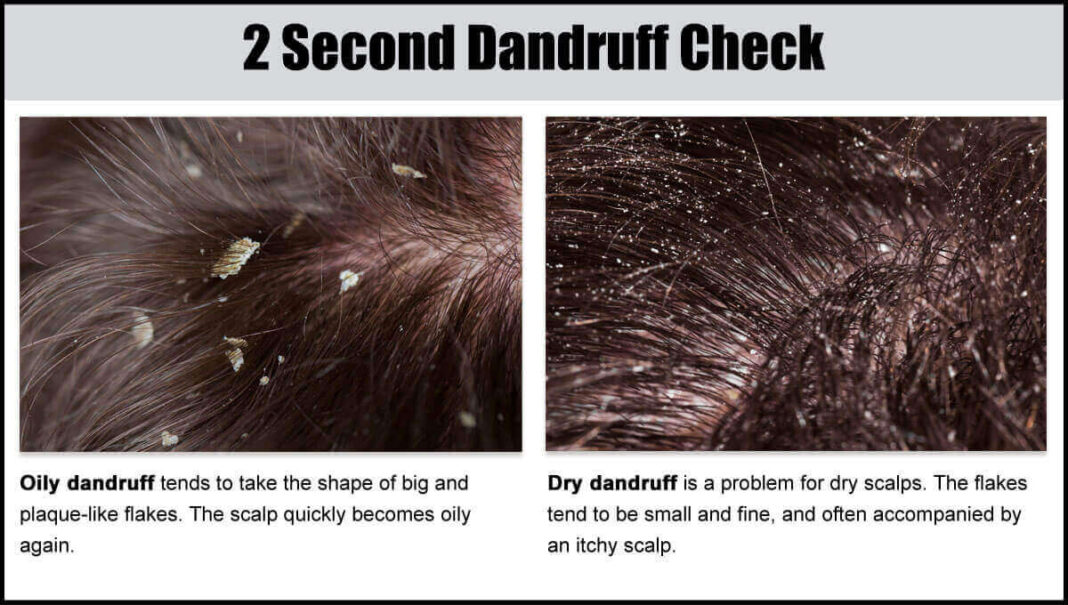Dandruff is a common scalp condition that affects millions of people worldwide. Despite its prevalence, there are still misconceptions surrounding dandruff, including whether is dandruff contagious?
What is Dandruff?
Dandruff is a chronic scalp condition characterized by flaky, itchy skin on the scalp. These flakes are often visible in the hair or on clothing and can cause discomfort and embarrassment.
Why is it a Common Concern?
Dandruff can be embarrassing and uncomfortable, leading many individuals to seek solutions to alleviate its symptoms and restore scalp health.
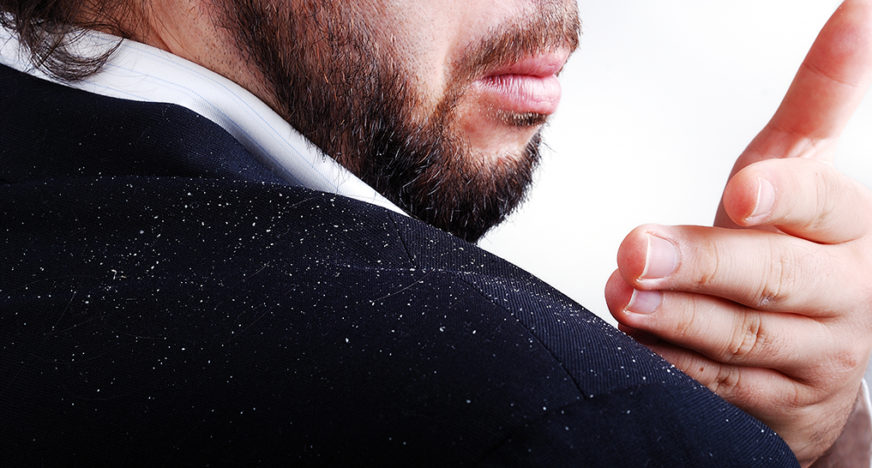
Areas Affected by Dandruff
Dandruff primarily affects the scalp but can also occur in other areas rich in oil glands, such as the eyebrows, ears, beard, and sides of the nose.
Causes of Dandruff
Dandruff can arise from various factors, including:
1. Malassezia
The overgrowth of a yeast-like fungus called Malassezia on the scalp is a common cause of dandruff. This fungus feeds on the natural oils produced by the scalp, leading to irritation and flaking.
2. Seborrheic Dermatitis
Seborrheic dermatitis, a condition characterized by red, oily skin covered with yellow or white scales, can contribute to dandruff formation. It often affects areas rich in oil glands, including the scalp.
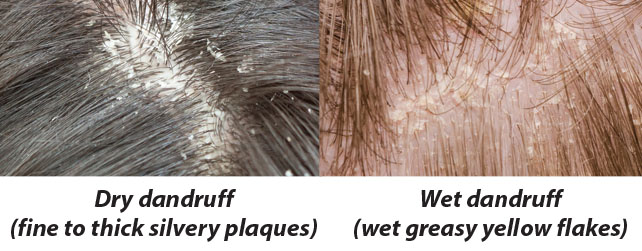
3. Dry Skin
Dry skin is a prevalent cause of dandruff, particularly during the winter months when humidity levels drop. Moistureless skin flakes off more easily, leading to visible dandruff.
4. Sensitivity to Hair Care Products
Some individuals may develop dandruff due to sensitivity or allergic reactions to certain hair care products, such as shampoos or hair dyes.
Symptoms of Dandruff
Dandruff manifests through various symptoms, including:
- Flaky skin on the scalp
- Itching and irritation
- Redness and inflammation
- Oily or dry scalp
- Soreness or tightness in the scalp
Types of Dandruff
Dandruff can present in different forms, each with its unique characteristics:
1. Dry Dandruff
Dry dandruff appears as white or gray flakes on the scalp and hair. It is often accompanied by itching and tends to worsen in dry environments.
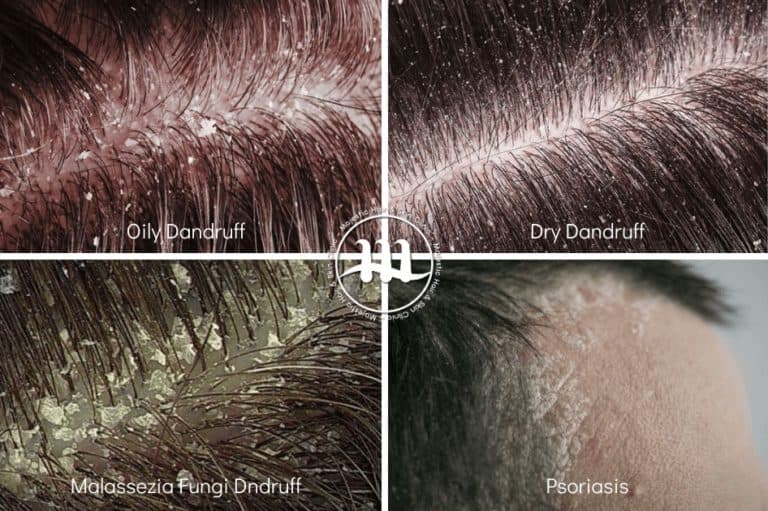
2. Oily Dandruff
Oily dandruff, also known as seborrheic dermatitis, is characterized by greasy, yellowish scales on the scalp. It is often accompanied by redness and inflammation.
Is Dandruff Contagious?
Contrary to common belief, dandruff is not contagious. It is a non-infectious condition caused by various factors, including fungal overgrowth, dry skin, and sensitivity to hair care products.
How to Avoid Dandruff by Self-Care Measures
While dandruff cannot always be prevented, certain self-care measures can help manage symptoms and reduce flare-ups:
- Regular Shampooing: Wash your hair regularly with a gentle, pH-balanced shampoo to remove excess oil, dirt, and dead skin cells from the scalp.
- Use Anti-Dandruff Shampoos: Incorporate anti-dandruff shampoos containing ingredients like ketoconazole, zinc pyrithione, or selenium sulfide into your hair care routine.
- Maintain a Healthy Diet: Consume a balanced diet rich in vitamins, minerals, and essential fatty acids to promote scalp health.
- Manage Stress: Practice stress-reducing techniques such as meditation, yoga, or deep breathing exercises to minimize stress-related dandruff flare-ups.
- Limit Hair Products: Avoid using excessive hair styling products that can build up on the scalp and exacerbate dandruff.
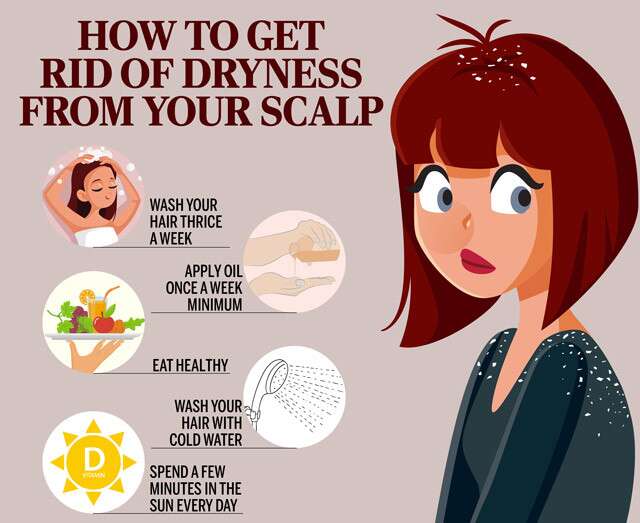
Medical Treatments for Dandruff
In cases where self-care measures are insufficient, medical treatments may be recommended by healthcare professionals:
- Topical Antifungal Medications: Prescription-strength antifungal shampoos, creams, or lotions containing ingredients like ketoconazole or ciclopirox can effectively treat dandruff caused by fungal overgrowth.
- Topical Steroids: In cases of severe inflammation and itching, topical steroids may be prescribed to reduce inflammation and alleviate symptoms.
- Coal Tar Shampoos: Shampoos containing coal tar can help slow down the rapid growth of skin cells on the scalp, reducing flakiness and itching.
- Salicylic Acid Preparations: Over-the-counter shampoos and scalp treatments containing salicylic acid can help exfoliate dead skin cells and reduce dandruff.
Conclusion
Dandruff is a common scalp condition that can cause discomfort and embarrassment. By understanding its causes, symptoms, and treatment options, individuals can effectively manage dandruff and maintain a healthy scalp. Incorporating self-care measures and seeking medical advice when necessary can help alleviate symptoms and improve overall scalp health.
